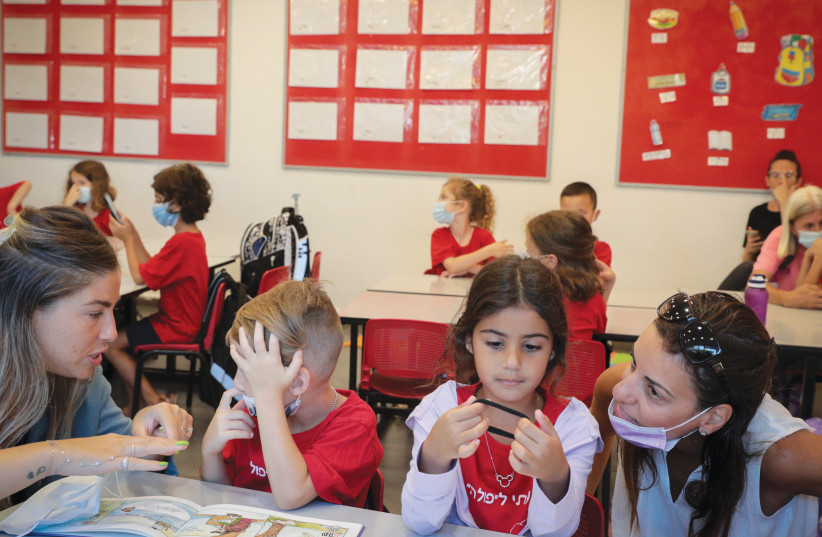Israel will start to offer the AstraZeneca coronavirus vaccine in the coming days, coronavirus commissioner Salman Zarka said Monday in a press briefing. It will be also used as a booster shot for people who cannot receive an mRNA vaccine, he said.
“Our directive will be that a person’s doctor will decide when it is appropriate to use this vaccine as opposed to the Pfizer or Moderna [mRNA] vaccines that we have been using in Israel,” Zarka said.
A supply of AstraZeneca vaccines is already in the country, and they will be delivered to the healthcare providers in the coming days, he said.
“In general, this vaccine is meant for those who experienced side effects, even not a lot, and therefore there was a medical decision not to give them the third shot by Moderna or Pfizer so that they can protect themselves and receive the vaccine by AstraZeneca,” he added.
The vaccine by AstraZeneca is based on a different technology than Pfizer’s and Moderna’s, which are both messenger RNA vaccines. AstraZeneca uses a weakened animal virus as a viral vector, and it contains the coronavirus spike protein so that the body’s cells will be able to recognize it and produce antibodies.
It has received emergency approval from the European Medicines Agency and other health bodies, but not from the US Food and Drug Administration.
Also on Monday, a day after the Green Class outline began to be implemented, the number of students in isolation after being exposed to a verified coronavirus carrier did not decrease, but rather slightly rose, the Health Ministry reported.

As of Sunday morning, there were about 72,000 schoolchildren in quarantine for this reason, in addition to 14,000 infected with the disease themselves. Some 24 hours later, the ministry’s report showed that the respective figures were 75,000 and 13,000. The number of students in quarantine is expected to decrease in the coming days, the ministry said.
The new rules came into effect on Sunday in cities and neighborhoods that are labeled as green under the Health Ministry’s Traffic Light model, which is based on their level of morbidity and other parameters. Currently, 146 out of 280 areas in the country are green.
Under the program, schoolchildren who are exposed to a verified patient do not have to automatically enter quarantine. Rather, they need to take a PCR test and, if found to be negative, undergo a rapid antigen test at home every day for a week, followed by a final PCR test. Provided they do not test positive at any stage, they may return to school.
On Sunday, several municipalities and families said they had not received the kits to test their children, who had to remain at home, Israeli media outlets reported.
There are enough tests available for everyone, and they will be distributed to schools so that they can give them to parents if needed, Zarka said.
“Once we sum up the results of the pilot, we will see to what extent it truly benefits children and parents,” he said. “As soon as we establish that this is the right way, we will expand it to additional classes and to preschools.”
The authorities will consider allowing children to be exempt from isolation for certain activities after school hours, Zarka said.
He expressed optimism about the nationwide morbidity rate, saying he hopes to see a decline in the number of people in serious condition, especially patients on ventilators, who are creating an overload on the hospital system.
As of Monday morning, there were 447 patients in serious condition, more than 100 fewer than last Monday, and 187 of them were on ventilators.
Some 1,457 new cases were identified on Sunday, with 1.88% of those screened testing positive. A week earlier, there were 2,699 new virus carriers, and 2.82% of them tested positive.
The number of active cases has declined to 25,000, the Health Ministry reported. At the peak of the fourth wave a few weeks ago, there were more than 80,000 cases.
